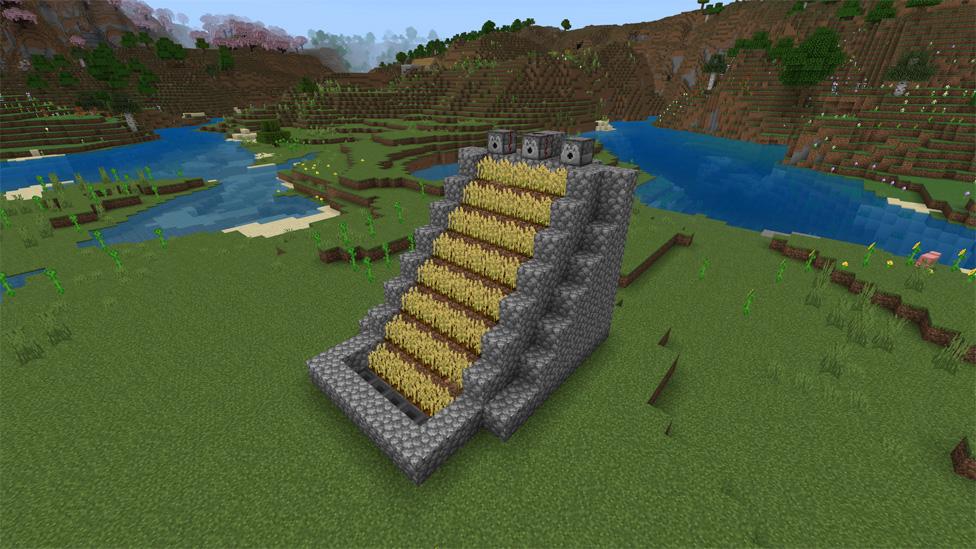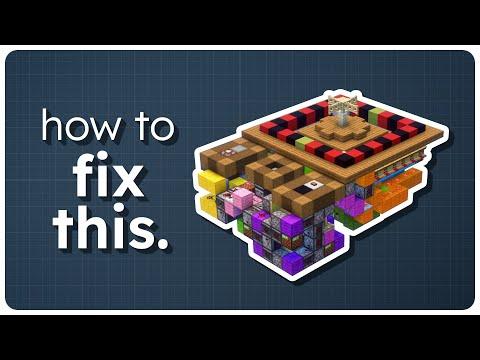Mastering Redstone in Minecraft: Advanced Mechanics Unleashed In the vast digital expanse of Minecraft, where the only limit is the scope of one’s inventiveness, few elements hold the power to transform ordinary gameplay into extraordinary creations quite like Redstone. This enigmatic material, akin to the lifeblood of circuitry, weaves its way through the game, empowering players to construct intricate machines, automated farms, and elaborate contraptions that defy the very boundaries of the blocky realm. While many players familiarize themselves with the basics of Redstone—learning to create simple doors or basic traps—there lies a deeper, more intricate world that beckons those brave enough to venture beyond the fundamentals. In this article, we will unlock the secrets of advanced Redstone mechanics, guiding you through the gears and levers of this interesting technology. Whether you are an aspiring engineer or a seasoned player looking to elevate your creations, prepare to delve into the complexities of Redstone and unleash your potential as a true master builder in Minecraft.
Exploring the Fundamentals of Redstone Logic
At the core of Redstone creations lies the understanding of basic components and their interactions. Redstone is no longer just a tool for powering mechanisms; it operates as a system of circuits that can replicate logic gates found in the digital world. key components include:
- Dust: The essential wiring of your circuits.
- Repeaters: Used for extending signal strength and introducing delays.
- Comparators: Essential for measuring the amount of Redstone signal and creating complex logic.
- Pistons: Can push or pull blocks, acting as movable parts in your designs.
Gaining mastery of Redstone logic means utilizing these components to create intricate contraptions. Building blocks of logical operations can be represented through simple combinations of these elements. For instance, creating an AND gate could be achieved with two inputs via Redstone torches, while an OR gate may need just a single torch to operate. Here’s a basic overview of how to set up these gates:
| Gate Type | Components Needed | Output Condition |
|---|---|---|
| AND Gate | 2 Levers, 2 Redstone Torches | Both levers ON |
| OR Gate | 2 Levers, 1 Redstone Torch | at least one lever ON |
Innovative Circuit Designs for Complex Machines
In the realm of Minecraft, redstone circuitry mimics real-world electrical engineering concepts, allowing builders to create intricate and functional machines. One of the most exciting aspects of advanced redstone mechanics is the ability to design multi-input logic gates that facilitate complex operations. Builders can employ the principles of AND, OR, and NOT gates to construct computing circuits that can handle multiple parameters, making automatic doors, traps, or even basic calculators. The combination of these gates creates an ecosystem where machines can respond to various stimuli, greatly enhancing gameplay depth.
To visualize some of these designs and their functionalities, consider the following table that outlines common redstone components and their uses:
| Component | Function | Use Case |
|---|---|---|
| Redstone Torch | Acts as a powered block | Used in NOT gates |
| lever | Manual power source | Activates doors or traps |
| Button | Temporary power source | Triggers devices for short durations |
| Comparators | Redstone signal analysis | Resource measuring systems |
With the creativity afforded by these components, players can explore piston mechanisms, which allow for movement and manipulation of blocks, creating dynamic features like hidden doors and automated farms. Advanced circuits integrate clock generators to create timed sequences, enabling players to build complex systems that work autonomously. When designing intricate machines, experimentation is key; tweaking your configurations can lead to groundbreaking innovations, like a fully functional roller coaster that operates under strict redstone logic.

Automating Your Minecraft World: Tips and Tricks
In the world of Minecraft, mastering Redstone can elevate your gameplay to unprecedented heights, opening up a realm of automation possibilities that can streamline your everyday tasks. By grasping the principles of Redstone mechanics, players can create contraptions that save time and enhance efficiency. Delve into the following essential tips for effective Redstone automation:
- Understand the Basics: Familiarize yourself with Redstone components such as dust, repeaters, and comparators. Knowledge of how each component interacts is crucial.
- Build Efficient Circuits: Use logic gates (AND, OR, NOT) to create complex systems while keeping your circuit as compact as possible.
- Integrate Redstone with Other Elements: Combine Redstone with pistons, hoppers, and dispensers to facilitate automated farms and item sorting systems.
By experimenting with various designs, you’ll discover unique solutions that suit your gameplay style. Below is a simple table illustrating common Redstone components and their uses:
| Component | Function |
|---|---|
| Redstone Dust | Conducts redstone signal between components. |
| Repeater | Extends Redstone signal distance and adds delay. |
| Comparator | Compares and adjusts signal strength. |
| Piston | Moves blocks when powered. |
Remember that collaboration with fellow miners can spur innovation. Share your creations and learn from others to refine your techniques.

Troubleshooting Common Redstone Issues for Seamless Builds
redstone can be delightful yet frustrating, especially when your intricate designs come to a halt due to common issues. One of the most frequent hurdles builders encounter is signal degradation, which can occur when circuits traverse lengthy distances. This might lead you to check for redstone repeaters, as these handy components can regenerate signals, extending their reach. When building your contraptions, remember the following tips to maintain signal integrity:
- Use repeaters to extend the range of your signals.
- Limit the distance between redstone components.
- Check for block interference; ensure redstone dust is not obstructed.
If you continue to face problems, it might be due to timing issues within your redstone clock circuits. These circuits should ideally synchronize signals, but when misconfigured, they can lead to malfunction. To troubleshoot these systems effectively, consider using a solid block to mount your redstone components to prevent unwanted overlap or delay. Pay attention to the following common clock circuit pitfalls:
- Ensure that your pistons or observers are correctly positioned.
- Adjust the delay settings on your repeaters to find the right timing.
- Test the mechanism in isolation before integrating it into larger builds.
Final Thoughts
As we conclude our deep dive into the intricate world of Redstone mechanics in Minecraft, it’s clear that mastery of this remarkable material opens doors to infinite possibilities. Whether you’re automating your farms, crafting intricate traps, or building complex contraptions, the potential of Redstone is only limited by your creativity and ingenuity. Remember, each circuit you design tells a story, and each activation brings your world to life in ways that transcend the ordinary gameplay. As you continue to explore and experiment with these advanced mechanics, don’t shy away from pushing the boundaries of your imagination. The community is a treasure trove of ideas, from awe-inspiring creations to helpful tutorials, providing endless inspiration for your journey ahead. With your newfound knowledge, go forth and create! Let the pulse of Redstone guide you as you construct marvels that not only enhance your gameplay but also leave a lasting mark on the vast landscape of your Minecraft experience. Happy building!






